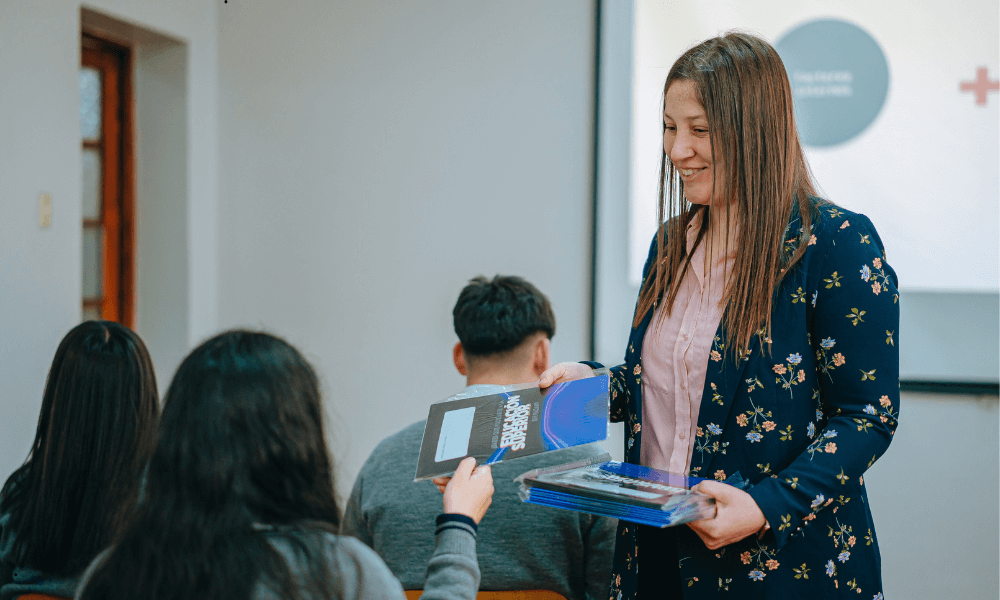With the participation of 63,612 students from 589 technical-vocational schools across all regions of Chile, ASF seeks to learn about the motivations, expectations, and challenges faced by senior-year students, while also providing them with clear and practical tools to make informed decisions about their academic future.
Each student received a personalized set of resources that included information on the importance of accessing higher education, employability and income data, available financing opportunities and their requirements, guidance on higher education institutions and program durations, as well as a calendar highlighting the most relevant milestones of the admissions process.
Additionally, the 589 participating schools received both physical and digital reports summarizing the key results of the student survey, along with general recommendations to support them at the close of their school journey. These tools enable school leaders and teachers to make evidence-based decisions and strengthen the educational pathways of their communities.
Fernanda Orellana, Director of Education at Fundación Luksic, stated: “We have seen growing interest among teaching teams in strengthening the pathways of technical-vocational students. We believe that the information provided by Aspiraciones sobre el Futuro not only helps students make informed decisions, but also equips schools to better support and guide them throughout this process.”
ASF in numbers
The survey results highlight the information gaps students face when planning their academic futures. Six out of ten young people reported having little to no knowledge about available financing options, while only 4% said they were aware of the requirements to access tuition-free education. In this context, the majority identified their teachers as their main source of information about higher education.
These findings reinforce the importance of the program in ensuring that students have clear, accessible information to support them—and their school communities—at this crucial decision-making stage.

